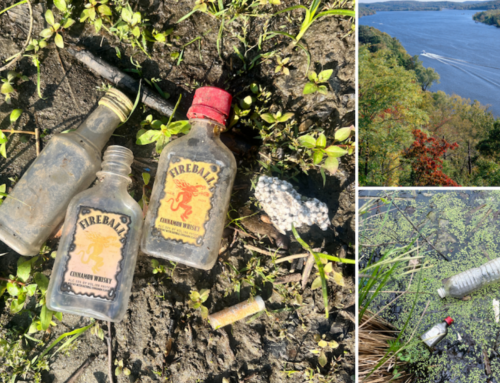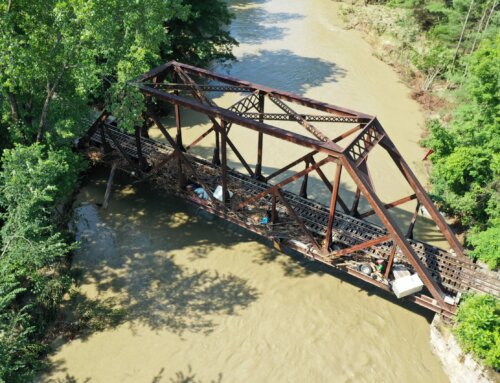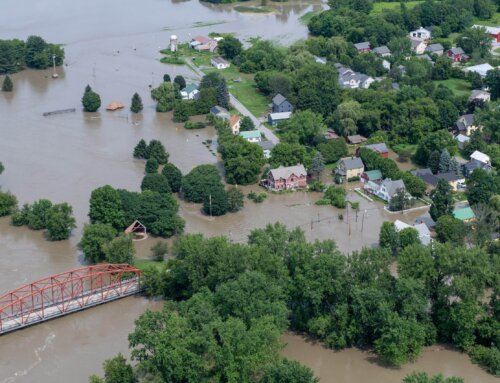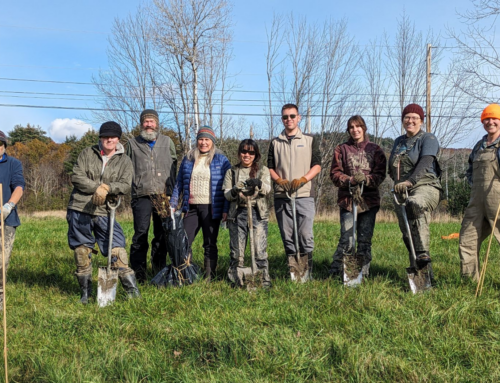June 27, 2016
Honorable Peter Welch (VT-ALL)
2303 Rayburn House Office Building
Washington, D.C. 20515
Dear Congressman Welch:
The Connecticut River Watershed Council (CRC) is writing on behalf of our members. Since 1952, the members of the Council, in all four watershed states have worked to protect the Connecticut River. We are active participants in virtually all FERC proceedings that affect the hydroelectric dams in our river. We are writing to express our opposition to H.R. 8 the North American Energy Security and Infrastructure Act of 2015 in particular the amendment offered by Reps McMorris, Rodgers, and McNerney.
We are, as you know actively participating in the relicensing of the three mainstem dams in the Connecticut River between Vermont and New Hampshire. We rely on the existing FERC and NEPA requirements, complex though they are to balance the interests of power production with the environmental and recreation uses of a river. Surface water of the United States is a public trust resource held by the state for the common use of all its citizens, it is our water.
In recognition of all rivers being public trust resources, the Federal Power Act requires FERC to balance competing interests in issuing a license because no single use of a river – power, drinking water, irrigation, commercial or sport fishery, recreation, or other use should automatically take precedence one over the other. Unfortunately, H.R. 8 would upend that balance, placing power generation artificially above all other uses of the river.
Hydroelectric licenses have fixed conditions that generally remain unchanged during the license term of 30 to 50 years. Licensees also benefit from unlimited, automatic, annual extensions after their license has expired if FERC has not issued a new license. As a result, the impacts of hydropower dams often go unaddressed for up to half a century.
Particularly for those facilities first licensed before enactment of the Electricity Consumers
Protection Act (1986) and major environmental statutes such as National Environmental Policy
Act (1970), the Clean Water Act (1972), and the Endangered Species Act (1973), the process of developing new license conditions necessarily will require upgrades to facilities to bring them in line with modern environmental laws and attendant regulations. This makes the licensing process rigorous and rightfully so.
In the name of reform, the provisions included in H.R. 8 give preferential treatment to electric utilities at the expense of other legitimate parties to licensing proceedings including states, Indian tribes, conservationists, irrigators, ranchers, and sportsmen. Language that would require other federal and state agencies to defer to the scope of environmental review determined by FERC to be appropriate for the project troubles us. This deference language restrains the important work that other agencies and NGOs perform. In addition, through personal experience CRC questions the long term staff knowledge of our river and our values for the river given the typical wholesale turnover of FERC staff during any ongoing project review.
H.R. 8 limits FERC conditions to only those necessary to protect public safety or, with respect to addressing natural resource impacts, to those on fish and wildlife resources directly caused by the construction and operation of the project, including the requirement that such conditions be “reasonable, economically feasible, and essential.” Our question is from whose perspective will the conditions be reasonable and essential: a DC bureaucrat with little knowledge or experience with our river, a project owner whose bottom line is profit or from the perspective of a local informed river user?
Even beyond the problem of FERC not knowing our river, H.R. 8 removes the requirement that FERC prepare an Environmental Impact Statement, limiting their options to either an Environmental Assessment or a Categorical Exclusion. Being able to comment on the draft EIS with its required responsiveness summery, is one of the leverage points local interests have to influence license conditions.
The section limits FERC’s jurisdiction over project works to include only the powerhouse and primary transmission line, leaving conduits, dams, impoundments, shoreline, lands, or project works associated with the underlying facility exempt from Federal environmental or safety oversight. One of the major concerns in the current relicensing on the Connecticut River in three states is shoreland erosion. Local landowners will be “thrilled” to hear that they no longer have a seat at the table.
Several states, including VT have expressed concern that provisions in H.R. 8 would remove state Section 401 authority for these licenses. This is truly a mistake if one values the local perspective in relicensing hydroelectric dams. This is a loss of another significant leverage point in bringing forth and legitimately addressing local concerns of the impacts of these projects.
H.R. 8 would undermine through a new exemption from licensing, bedrock environmental statutes, including the Clean Water Act, the National Environmental Policy Act, and the Endangered Species Act.
On another topic within H.R. 8, CRC has an interest in siting natural gas pipelines every place they cross our river, a tributary, or a wetland in the watershed. The siting of natural gas pipelines is often controversial (think Addison County and VT Gas or think southern NH and the Kinder Morgan Northeast Direct Pipeline) and requires detailed regulatory scrutiny by FERC and state regulatory agencies, yet H.R. 8 would require FERC to decide on a pipeline application within 90 days, regardless of the complexity of the application.
FERC has previously testified that most pipelines are already certificated within a one-year period, the purpose of this section appears to have more to do with curtailing federal and state resource agencies, NGOs like CRC, and the ability of the pubic to review and comment on a proposed pipeline than on actually speeding the delivery of energy to end users.
CRC knows that this bill is likely to move forward but as it does, we ask for your support in modifying H.R. 8 so that CRC and groups like ours do not lose the few leverage points we have to protect our river in the complex and already burdensome FERC regulatory process.
On behalf of the Connecticut River
David Deen River Steward
Cc Senator Patrick Leahy
Senator Bernie Sanders
Congresswoman Ann Kuster
Senator Kelly Ayotte
Senator Jean Shaheen







